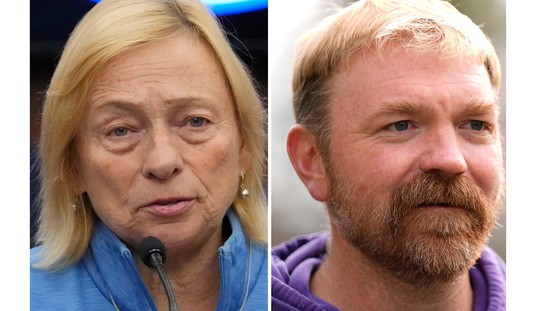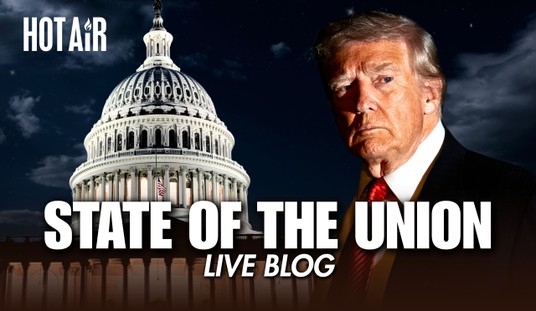Attorney General Eric Holder should resign for his role in the James Rosen case. He signed off on a search warrant to Rosen, a Fox News Reporter. This warrant treated Rosen as a common criminal. It sets a terrible precedent. Holder should resign to erase this precedent…
The reason the Espionage Act does not apply to Rosen is that it does not apply to those who publish (or broadcast) information leaked to them. In the Pentagon Papers case, the government asserted initially the Espionage Act did apply to The New York Times, the paper that published parts of the Vietnam Archives leaked to it by Daniel Ellsberg…
The government has now put itself in the position of setting standards for what reporters can and cannot do when they talk to those who have access to classified information. If a reporter steps over the line drawn by the Justice Department, he or she may become a criminal. In short, the government has criminalized the newsgathering process.
The boycotting news outlets said that the DOJ’s insistence that the media groups not report on the content of the discussions violated their journalistic guidelines or was a conflict of interest.
“They don’t help us inform the public,” McClatchy Washington Bureau Chief James Asher told Poynter about off-the-record meetings. “This one seems designed mostly to make a public relations point and not a substantive one. If the government wants to justify its pursuit of journalists, they ought to do it in public.”…
White House spokesman Josh Earnest said Thursday that the administration was “hopeful that media organizations will take advantage of the opportunity to constructively contribute to this process.”
Tom Brokaw, the network’s veteran news anchor, seems to have already decided that NBC News shouldn’t go. In an interview with Huffington Post Live on Thursday, Brokaw said “no news executive should go in there on an off-the-record session.”
That said, everyone should just decline the opportunity to have this secret chat with Eric Holder about the Justice Department’s bespoke approach to the “freedom of the press.” Unless, of course, one of the attendees plans on going and then tossing the “off the record” rule in the garbage, which in my estimation would be an okay thing to do. Media organizations that conflate “journalistic ethics” with “bullshit political niceties” are conspirators in their own demise. So, you know, go right ahead and burn Eric Holder as a “source.” What’s he going to do? Petulantly deny you “access.” Feh, who cares?…
This is not a matter about which the press needs to have a “dialogue.” This isn’t a situation that calls for an “opportunity” to have a “frank exchange.” To suggest these things, as the aforementioned officials have done, is to imply that somehow the Obama administration and the media have just sort of mutually wandered off course somehow. A relationship went south. Everyone’s off on the wrong foot, and we just need to clear the air. Let’s all sit down and rap about it, and maybe everyone can meet in the middle.
With this “let’s get all the stakeholders in a room together to have an encounter session” environment having been set in advance, the media outlets that participate will be essentially saying, “We’re partially responsible for fixing this situation.” That’s not something they should be admitting. There’s no compelling reason for the media to give ground here. Rather, what media outlets should do is simply demand that DOJ officials either transparently provide a rationale for the actions they took, or transparently explain how they will alter their behavior going forward. If the DOJ refuses to do either, then the media outlets involved will simply have to accept that this is the “new normal,” and adapt to it.
But it should all be done out in the open.
As Michael A. Walsh notes in the New York Post, Holder is directly involved in essentially every aspect of President Obama’s second-term scandalpalooza. Not only did he sign off on the search warrant for Fox News’s James Rosen’s personal emails, he is at the center of questions over the state’s broad surveillance of the AP, an operation that has raised hackles across the political spectrum regarding First Amendment issues and civil-liberties concerns. (Holder did himself no favors by recusing himself from the AP case in vague and uncertain terms). Walsh notes that “even the Internal Revenue Service’s targeting of conservative and Tea Party groups for special scrutiny—[finds its] nexus at the top of the Justice Department.”…
[Janet] Reno was the one cabinet member who stayed for the entire run of the Clinton administration. She did the ugly jobs on behalf of the president, and took the political heat for them.
Now Holder is doing the same for the Obama White House—and perhaps no one understands the essential role of the attorney general better than our current president. In 2007, then-senator Obama told Larry King that he voted against confirming Albert Gonzales as attorney general because Gonzo “seemed to conceive his role as being the president’s attorney instead of being the people’s attorney.”
Upon taking over the Oval Office, Obama quickly rethought many long-held beliefs, including his views on executive power. It’s no wonder he now has a “president’s attorney” of his own, and every reason to retain his scandal-plagued counsel.
Holder has one particular, highly developed skill: a talent for loyalty. And this is designed to please an audience of one. But Obama’s continued trust in his besieged attorney general has radiating effects. The review of Justice Department abuses relating to the press is being conducted by . . . Holder. A special counsel in this case would be appointed by . . . Holder. The FBI probe of the IRS scandal was ordered by . . . Holder. In all these cases, the restoration of public trust depends on an attorney general worthy of public trust.
During his recent Naval Academy commencement address, Obama said: “It’s no secret that in recent decades many Americans have lost confidence in many of the institutions that help shape our society and our democracy. But I suggest to you today that institutions do not fail in a vacuum. Institutions are made up of people, individuals. And we’ve seen how the actions of a few can undermine the integrity of those institutions.”
Mr. President, meet your attorney general.
Via Greg Hengler.









Join the conversation as a VIP Member